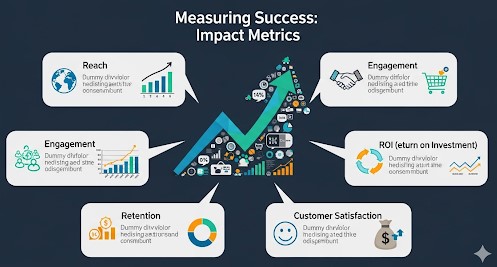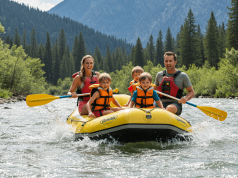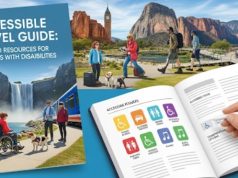In an age when travelers seek more than just sightseeing, voluntourism has emerged as a powerful way to combine cultural immersion with tangible benefits for host communities. This guide dives into everything you need to know—from the true definition of voluntourism and its ethical considerations to practical tips for selecting programs, preparing for your journey, and measuring your impact. Whether you’re a first-time volunteer or a seasoned change-maker, read on to ensure your next adventure leaves a lasting, positive legacy.
1. What Is Voluntourism? Beyond the Buzzword

Voluntourism blends “volunteering” and “tourism,” inviting travellers to donate skills, time, or labour to community-driven projects while experiencing local culture. Unlike pure humanitarian missions, voluntourism is typically shorter—ranging from one week to a few months—and often appeals to individuals who want a break from traditional sightseeing.
Key aspects include:
- Community-led objectives: Projects should be designed by locals to address real needs—education, conservation, or infrastructure.
- Skills exchange: Volunteers offer expertise (teaching, construction, digital marketing), while locals share cultural insights.
- Sustainable timelines: Unlike long-term aid, voluntourism is typically short but can be impactful with proper planning.
2. The Benefits of Ethical Voluntourism
When done right, voluntourism can yield profound benefits for both travelers and host communities:
- Community empowerment: Locals gain skills, resources, and networks that persist long after you leave.
- Cultural immersion: Work alongside residents, learn customs firsthand, and develop a deeper cross-cultural understanding.
- Personal growth: Stepping outside comfort zones builds resilience, empathy, and practical problem-solving skills.
- Networking: Connect with NGOs, community leaders, and fellow travelers passionate about positive change.
3. Common Pitfalls & Ethical Concerns
Not all voluntourism creates win-win outcomes. Be mindful of these red flags:
- Unskilled labor: Avoid programs that let untrained volunteers perform medical procedures, build complex structures, or teach advanced courses without credentials.
- Short‐term dependency: Projects that rely on frequent volunteer turnover can undermine local stability and create reliance.
- Cultural insensitivity: Imposing Western norms or disrupting traditional ways of life can erode community values.
- Hidden costs: Some organizations charge exorbitant placement fees, with little transparency on fund allocation.
4. How to Choose an Ethical Voluntourism Program
Follow these steps to vet opportunities carefully:
- Research the NGO or host: Look for local leadership, clear mission statements, and audited financial reports.
- Verify community involvement: Confirm that locals helped design and drive the project goals.
- Assess transparency: Request a detailed budget, volunteer roles, and expected deliverables.
- Read reviews & testimonials: Seek feedback on social media, travel forums, and review platforms from past participants.
- Check for accreditation: Some reputable bodies (e.g., NCVO in the UK) certify ethical practices in volunteer travel.
5. Preparing for Your Voluntourism Adventure
Adequate preparation maximizes your effectiveness and keeps you safe:
- Health & safety: Obtain recommended vaccinations, travel insurance, and an emergency evacuation plan.
- Cultural briefing: Learn local customs, dress codes, and basic language phrases to show respect.
- Skill refinement: If you’ll teach English, practice lesson plans. For construction, familiarize yourself with tools and safety protocols.
- Packing essentials: Bring universal items—first‐aid kits, reusable water bottles, ethically sourced supplies—and minimize single‐use plastics.
- Set realistic expectations: Acknowledge language barriers, infrastructural limitations, and differing work ethics.
6. Top Voluntourism Project Types
Choose a project aligned with your skills and passions:
6.1 Education & Youth Development
Teach English, computer literacy, or vocational skills in rural schools or after-school programs. Volunteer roles range from classroom assistant to curriculum developer.
6.2 Conservation & Wildlife Protection
Join reforestation efforts, monitor endangered species, or assist in marine conservation tasks like coral reef restoration and beach cleanups.
6.3 Infrastructure & Construction
Help build community centres, wells, sanitation facilities, or affordable housing. Cement mixing, basic carpentry, and painting are common tasks.
6.4 Health & Nutrition
Support local clinics, run health workshops, or assist in maternal and child healthcare initiatives. Ensure you have proper medical training where required.
6.5 Arts & Culture Preservation
Collaborate on projects that document oral histories, restore heritage sites, or deliver arts workshops to younger generations.
7. Best Practices for Maximum Impact
Adopt these habits to ensure your project thrives after you leave:
- Build local capacity: Train community members to take over tasks rather than doing everything yourself.
- Document your work: Create manuals, photo logs, or video tutorials that serve as ongoing references.
- Foster partnerships: Connect the NGO with other funders, universities, or corporate sponsors for sustained support.
- Reflect & adapt: Solicit feedback from locals and adjust strategies as community needs evolve.
- Stay connected: Maintain communication post-trip to offer remote mentorship or fundraising assistance.
8. Measuring Success: Impact Metrics

Quantify your contribution by tracking:
- Number of beneficiaries: Students taught, trees planted, or patients served.
- Skills transferred: Local staff trained or community workshops conducted.
- Infrastructure built: Square footage of facilities, wells drilled, or sanitation systems installed.
- Long-term outcomes: Improved school attendance rates, increased crop yields, or revenue growth from ecotourism.
9. Common Pitfalls & How to Avoid Them
Even well-intentioned travelers can stumble. Keep these tips in mind:
- Overpromising: Choose deliverables you can realistically achieve given time and resources.
- Cultural misunderstandings: Approach disagreements with patience and seek local mediators if conflicts arise.
- Burdening hosts: Avoid creating extra chores for community members—your role is to support, not to distract.
- Neglecting self-care: Burnout reduces your effectiveness. Schedule rest days and connect with fellow volunteers for mutual support.
10. Beyond the Trip: Sustaining Your Impact
True voluntourism extends long after you pack your bags. Here’s how to keep the momentum alive:
- Fundraise online: Organize virtual campaigns to raise money for supplies, scholarships, or infrastructure maintenance.
- Remote mentoring: Host video workshops, review lesson plans, or offer pro bono consulting from home.
- Share your story: Write blog posts, speak at community events, or help your NGO market their cause to new audiences.
- Plan return visits: Short follow-up trips reinforce relationships and evaluate long-term outcomes.
Conclusion
Family Adventure Travel: Creating Unforgettable Memories Together is more than a trend—it’s an opportunity to bond, learn, and grow as a unit while exploring the world. This style of journey encourages children to embrace curiosity and resilience, and allows parents to see destinations through a fresh, wonder-filled lens. Success lies in choosing activities that engage every age, packing flexibility along with your essentials, and prioritizing moments of connection over a perfect itinerary. Whether camping under the stars, navigating a new city, or simply sharing stories after a day of exploration, these shared experiences become the stories your family will treasure for a lifetime.
Ready to turn your next vacation into a force for good? Start your voluntourism journey today and witness the genuine power of responsible travel.







